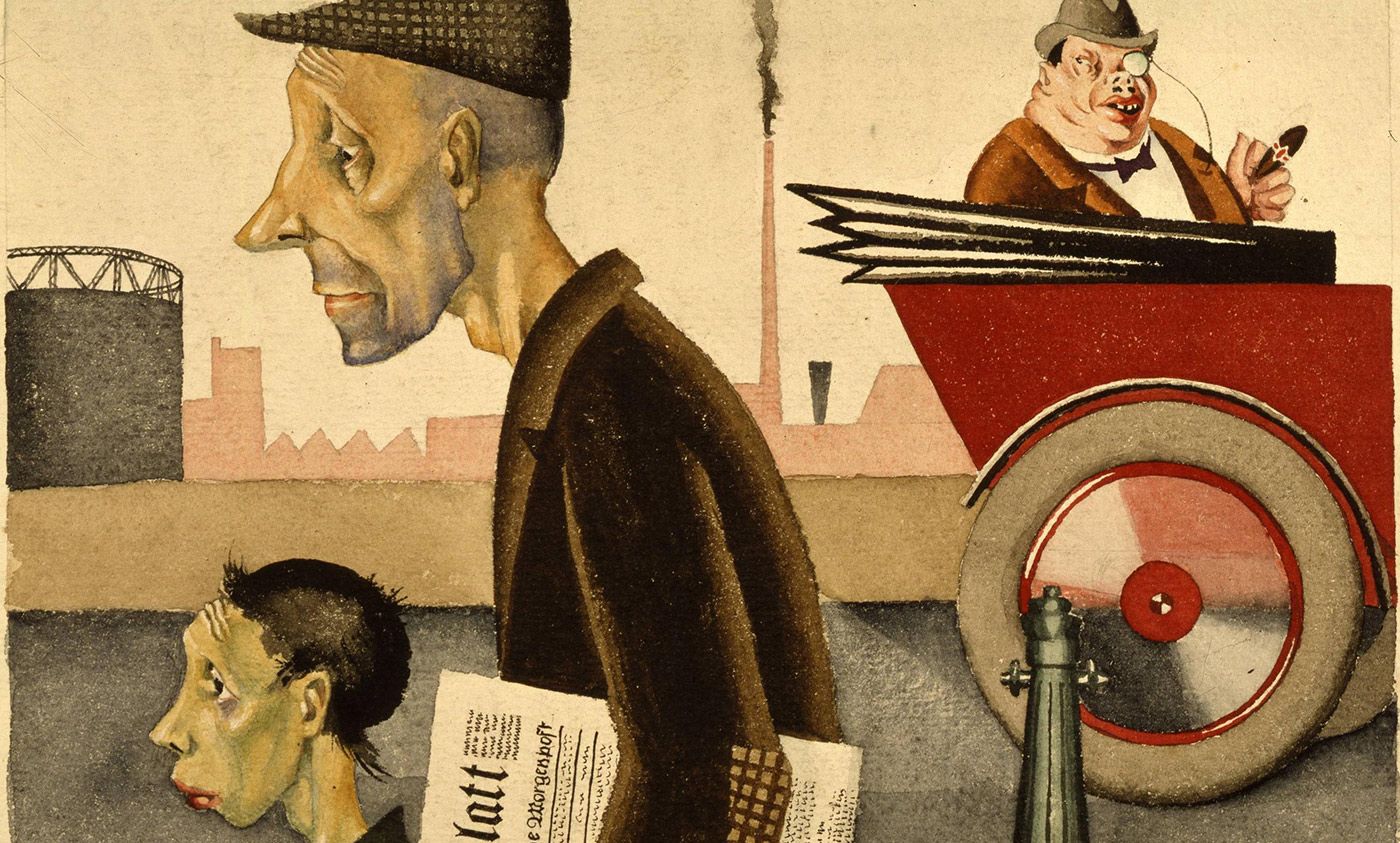NewsVine_Mariyam
Platinum Member
So there is science that supports the assholeness of some people?
Christian Jarrett is a cognitive neuroscientist turned science writer, whose work has appeared in New Scientist, The Guardian and Psychology Today, among others. He is editor of the Research Digest blog published by the British Psychological Society, and presents their PsychCrunch podcast. His latest book is Personology: Using the Science of Personality Change to Your Advantage (forthcoming). He lives in England.

Newspaper Carriers (Work disgraces) by Georg Scholz. 1921. Courtesy Wikipedia
It’s a question that’s reverberated through the ages – are humans, though imperfect, essentially kind, sensible, good-natured creatures? Or are we, deep down, wired to be bad, blinkered, idle, vain, vengeful and selfish? There are no easy answers, and there’s clearly a lot of variation between individuals, but here we shine some evidence-based light on the matter through 10 dispiriting findings that reveal the darker and less impressive aspects of human nature:
We view minorities and the vulnerable as less than human. One striking example of this blatant dehumanisation came from a brain-scan study that found a small group of students exhibited less neural activity associated with thinking about people when they looked at pictures of the homeless or of drug addicts, as compared with higher-status individuals. Another study showed that people who are opposed to Arab immigration tended to rate Arabs and Muslims as literally less evolved than average. Among other examples, there’s also evidence that young people dehumanise older people; and that men and women alike dehumanise drunk women. What’s more, the inclination to dehumanise starts early – children as young as five view out-group faces (of people from a different city or a different gender to the child) as less human than in-group faces.
We experience Schadenfreude (pleasure at another person’s distress) by the age of four, according to a study from 2013. That sense is heightened if the child perceives that the person deserves the distress. A more recent study found that, by age six, children will pay to watch an antisocial puppet being hit, rather than spending the money on stickers.
We believe in karma – assuming that the downtrodden of the world deserve their fate. The unfortunate consequences of such beliefs were first demonstrated in the now classic research from 1966 by the American psychologists Melvin Lerner and Carolyn Simmons. In their experiment, in which a female learner was punished with electric shocks for wrong answers, women participants subsequently rated her as less likeable and admirable when they heard that they would be seeing her suffer again, and especially if they felt powerless to minimise this suffering. Since then, research has shown our willingness to blame the poor, rape victims, AIDS patients and others for their fate, so as to preserve our belief in a just world. By extension, the same or similar processes are likely responsible for our subconscious rose-tinted view of rich people.
Continued here
Christian Jarrett is a cognitive neuroscientist turned science writer, whose work has appeared in New Scientist, The Guardian and Psychology Today, among others. He is editor of the Research Digest blog published by the British Psychological Society, and presents their PsychCrunch podcast. His latest book is Personology: Using the Science of Personality Change to Your Advantage (forthcoming). He lives in England.

Newspaper Carriers (Work disgraces) by Georg Scholz. 1921. Courtesy Wikipedia
It’s a question that’s reverberated through the ages – are humans, though imperfect, essentially kind, sensible, good-natured creatures? Or are we, deep down, wired to be bad, blinkered, idle, vain, vengeful and selfish? There are no easy answers, and there’s clearly a lot of variation between individuals, but here we shine some evidence-based light on the matter through 10 dispiriting findings that reveal the darker and less impressive aspects of human nature:
We view minorities and the vulnerable as less than human. One striking example of this blatant dehumanisation came from a brain-scan study that found a small group of students exhibited less neural activity associated with thinking about people when they looked at pictures of the homeless or of drug addicts, as compared with higher-status individuals. Another study showed that people who are opposed to Arab immigration tended to rate Arabs and Muslims as literally less evolved than average. Among other examples, there’s also evidence that young people dehumanise older people; and that men and women alike dehumanise drunk women. What’s more, the inclination to dehumanise starts early – children as young as five view out-group faces (of people from a different city or a different gender to the child) as less human than in-group faces.
We experience Schadenfreude (pleasure at another person’s distress) by the age of four, according to a study from 2013. That sense is heightened if the child perceives that the person deserves the distress. A more recent study found that, by age six, children will pay to watch an antisocial puppet being hit, rather than spending the money on stickers.
We believe in karma – assuming that the downtrodden of the world deserve their fate. The unfortunate consequences of such beliefs were first demonstrated in the now classic research from 1966 by the American psychologists Melvin Lerner and Carolyn Simmons. In their experiment, in which a female learner was punished with electric shocks for wrong answers, women participants subsequently rated her as less likeable and admirable when they heard that they would be seeing her suffer again, and especially if they felt powerless to minimise this suffering. Since then, research has shown our willingness to blame the poor, rape victims, AIDS patients and others for their fate, so as to preserve our belief in a just world. By extension, the same or similar processes are likely responsible for our subconscious rose-tinted view of rich people.
Continued here

